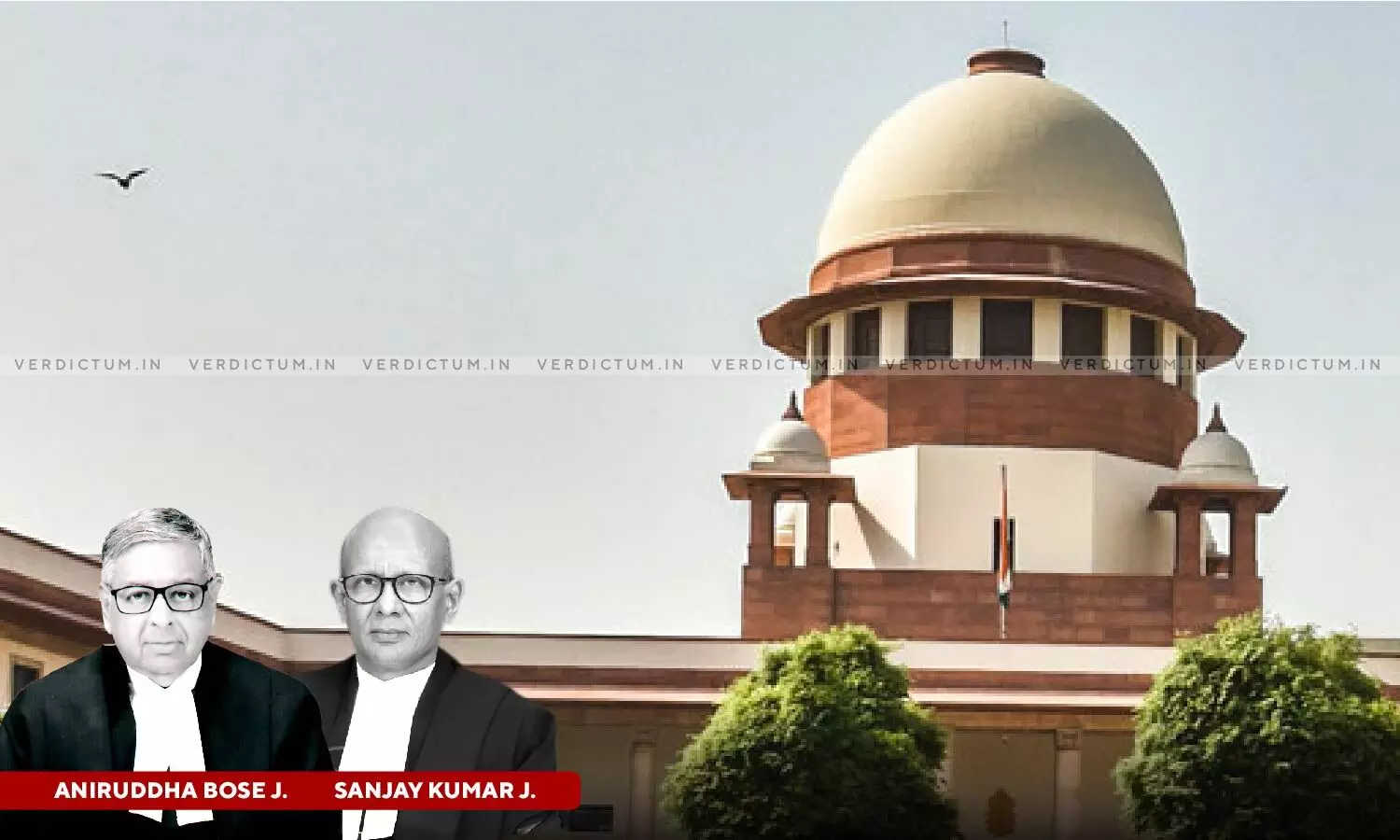
Contempt Of Court | Courts Can Issue Appropriate Directions For Remedying & Rectifying Things Done In Violation Of Its Order: Supreme Court
 |
|The Supreme Court set aside the Order of Calcutta High Court which vacated a stay order in violation of an order concerning possession of suit premises amounting to civil contempt.
The Court discussed the scope and extent of the contempt jurisdiction exercised by a High Court under Article 215 of the Constitution of India read with the provisions of the Contempt of Courts Act, 1971.
A Division Bench of the High Court had held that the act of a contemnor was in willful disobedience to the stay order passed in the first appeal and was not only contemptuous but also illegal and invalid. However, instead of initiating proceedings for contempt, the High Court vacated the stay order passed in the first appeal.
Justice Aniruddha Bose and Justice Sanjay Kumar observed that, “in addition to punishing a contemnor for disobeying its orders, the Court can also ensure that such a contemnor does not continue to enjoy the benefits of his disobedience by merely suffering the punishment meted out to him"
In this case, the court noted that "Violation of the status quo condition in the stay order stood complete, even as per the High Court, and vacating of the stay order did not have the effect of restoring the parties to their original position or deny the contemnor the benefit of the disobedience which already stood concluded. Violation of a conditional stay order, in the usual course, would entail vacating thereof in a properly constituted proceeding.”
AOR Amarjit Singh Bedi represented the appellant, while Sr. Advocate Harin P Raval appeared for the respondent.
The Shrimati Hutheesingh Tagore Charitable Trust had filed a suit for declaration of title, recovery of possession, and damages against the Baitanik Society. The Trial Court decreed the suit, and the Trust initiated execution proceedings. The Society filed an appeal and sought leave to let out a portion of the premises, which was rejected by the High Court. The Society allegedly violated the stay order by letting out the premises for exhibitions. Contempt proceedings were initiated, and a Division Bench of the High Court concluded that the Society willfully violated the stay order. The Division Bench vacated the stay order, allowing the Trust to execute the decree immediately.
The Court stated that “the fact situation in the present case is such, that vacating of the stay order in the appeal by the High Court in exercise of contempt jurisdiction did not assume either a restitutive or a remedying character.”
The Court further explained that by resorting to such a step while exercising contempt jurisdiction, the High Court was not acting in furtherance of the law.
The Court remarked that the act of violating the status quo order concerning possession of the suit premises qualified as 'civil contempt' under the Contempt of Courts Act, 1971. Despite this, the High Court, instead of directly addressing the contempt, vacated the stay order in the appeal, enabling the Trust to execute the decree.
Subsequently, the Court held that “This action of the High Court clearly transgressed the scope and extent of its contempt jurisdiction and cannot be sustained. To that extent, the impugned order is set aside.”
Accordingly, the Supreme Court partly allowed the appeal.
Cause Title: Amit Kumar Das v. Shrimati Hutheesingh Tagore Charitable Trust (2024 INSC 73)
Appearance:
Appellant: AOR Amarjit Singh Bedi, Advocates Ajay Gaggar, Varun Chandiok, Riya Seth, Yashwant Gaggar, Uttiyo Mallick, Anubhi Goyal, and Robin Sirohi
Respondents: Senior Advocate Harin P Raval, AOR Anando Mukherjee, Advocates Shwetank Singh, Shreya Bansal, Shrestha Narayan, Urmi H. Raval, and Siddharth H. Raval